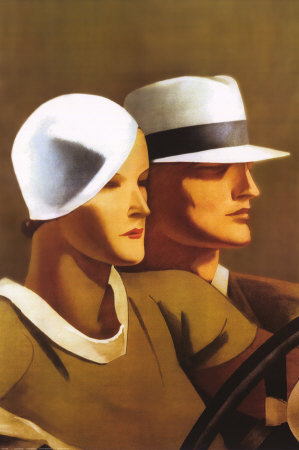Thursday, September 30, 2010
Monday, September 27, 2010
Midterm Development
Theme and Story
The theme that of my project is technology's negative affect on man. My story draws parallels with the philosophy of Primitivism, the belief that with technology came the loss of mankind's humanity. Though the ability to advance is one of our greatest strengths, it is also has the potential to being the key to our downfall. As with the Romans and the Babylonians, I want to tell the tale of man's great folly when given the gift progression.
The story start with a colossal vessel soaring hauntingly in the sky. The brilliance of this craft lies with its creators, a highly intelligent civilization that inhabits it. This was society of luxurious, peaceful beings that managed
to bring about incredible technological advancements. The flying craft happens upon a city populated by individuals of seemingly lesser intelligence than they. The beings become intrigued by what they see and desire to know more. So, they charge an adventurous individual known as the Traveler with the task of exploring the land of the Primitives. What he finds made a shocking impression on him. This is a society of great builders. But unlike the Traveler’s people, the primitives functions do not go beyond the necessity of survival. They are living in very harsh environments where the air is filthy and water is scarce. After seeing enough, he decides to make his way back to his home. He brings news to people about what he saw. Feeling sympathy for the primitives, the beings decide to share some of their technological secrets with the hard-lucked people. The Traveler makes his way back to the darken city and share with it people the means by which they can advance. Looking down from their great metropolis, the Traveler and his people observe as the primitive begin to make great strides of progression in their society. Everything was improving for the people. No longer did they have to suffer the conditions nature burdened them with. But as time goes on, the once primitive civilization start to exhibit radical changes in personality. More ambitious they became, more greedy and arrogant. Eventually they set their sights on the beings that gave them to key to advancement. Before the gentile beings in the sky know it, they are attacked by the once docile primitives. Angered by the destruction of their city, the beings strips away all power from the primitives. Every and all things that made up the primitives' utopian society were taken away forever.
Character Breakdowns
“They who touch the heavens”
- Advanced civilization that is of supreme intellect
- Origins are unknown
- Are a tranquil and humble society of technologically advanced beings
- Believe in the potential of all sentient life forms
- Like to observe other life without interfering with the natural course of things
“The Traveler”
- Is part of advanced civilization
- Very intrigued by the unknown
- Is a great inventor
- Likes to explore existence beyond the boundaries of his home
- Feels it is the purpose of his people to enlighten and aid in the progression of lesser life forms
- Greatly enjoys the luxury of his home but likes to take part in culture of other civilizations
“The Primitives”
- Lesser advanced society
- Have great ingenuity
- Are hard workers who struggle to survive
- Is oblivious to what exists beyond them
- More withdrawn socially
- Are very docile, most likely due to their condition



Thursday, September 23, 2010
Midterm Project










Tuesday, September 21, 2010
Proposal
Durgin, H. Frank, Krista Gigone, and Rebecca Scott. “Perception of Visual Speed
While Moving” The American Psychological Association, (2004), pp. 339-353
Gunderson, Keith “Robots, Consciousness, and Programmed Behavior
The British Journal for the Philosophy of Science, Vol. 19, No. 2 (1968), pp. 109-122
Ackoff, R.L and Churchman, C.W. “Purposive Behavior and Cybernetics”
Social Forces, Vol. 29, No.1 (1951), pp. 135-149
Aper, J. Michael. “Cybernetics and Art.”
Leonardo, Vol. 2, No. 3 (1969, pp. 257-265
Villers Human, de Suzanne. “Explosions in Visual Art, Literature and Music/ Prskanja u likovnim Umjetnostima, knjizevnosti I glazbi.”
International Review of the Aesthetic and Sociology of Music, Vol. 36, No. 1 (2005), pp. 179-197
Speed, Christopher. “Tele-Spatial Research.”
Leonardo, Vol. 34, No. 3 (2001), p. 198
Batterman, W. Robert. “Defining Chaos.”
Philosophy of Science, Vol. 60, No. 1 (1993)
Bisdorff, A.R., C.J. Wolsley, D. Anastasopoulos, A.M. Bronstein, and M. A Gresty.
“The perception of body vertical (subjective postural vertical_ in peripheral and central vestibular disorders” (1996)